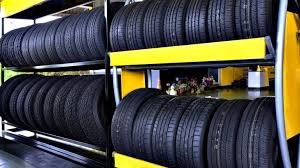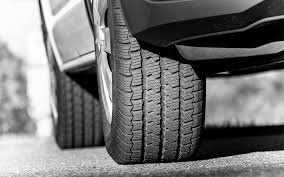With regards to vehicle upkeep, we frequently center around motor execution, eco-friendliness, and customary adjusting. In any case, one urgent part that will in general be disregarded is the tires. Vehicle tires are the primary contact point between your vehicle and the street, assuming an urgent part in guaranteeing safety and an ideal driving experience. Be that as it may, have you at any point contemplated whether tires have a timeframe of realistic usability? Might they at any point terminate like other transitory products?
Do Car Tires Have A Shelf Life? In this article, we dive into the captivating universe of vehicle tires and investigate the idea of their period of usability. We will uncover the elements that add to the disintegration of tires over the long haul, talk about the potential dangers related to utilizing terminated or matured tires, and give reasonable counsel on the most proficient method to decide whether your tires are over the hill.
Thus, attach your safety belts and prepare to unwind the secrets encompassing vehicle tire life span. We should investigate whether your tires have a ticking clock concealed inside!
Contents
Do Car Tires Have A Shelf Life?
Vehicle proprietors frequently center around motor upkeep, oil changes, and standard overhauling to guarantee their vehicles work without a hitch and effectively. Notwithstanding, one urgent part that is frequently disregarded is the tires. While tires are worked to endure different street conditions, they are not invulnerable to weakening after some time. This brings up a significant issue: Do vehicle tires have a period of usability? We will investigate the elements that influence tire life expectancy and examine the significance of supplanting tires when vital.

Understanding Tire Maturing
Tire maturing is a characteristic cycle that happens because of a mix of variables, including time, openness to the components, and use. After some time, the elastic mixtures utilized in tires change, bringing about progressive debasement. This maturing system can be advanced by different outer elements, like outrageous temperatures, UV radiation, synthetics, and unfortunate support.
Factors Influencing Tire Life Expectancy
- Time:
Regardless of whether a vehicle isn’t habitually determined, tires age. As a basic rule, most tire makers prescribe supplanting tires every six to a decade, no matter what the track profundity or obvious condition. This is because the elastic compound decays over the long haul, prompting a deficiency of adaptability and expanded weakness to breaking.
- Mileage:
The distance a vehicle covers straightforwardly influences tire wear. As the track wears out, the tire’s capacity to keep up with footing diminishes, representing a danger. Routinely checking the track profundity and observing tire wear is essential for keeping up with ideal execution and security.
- Capacity and Upkeep:
Legitimate tire stockpiling and support essentially influence their life expectancy. Putting away tires in a cool, dry spot away from direct daylight can assist with dialing back the maturing system.
It also depends on the brand of tires or the cost of car tires. Moreover, keeping up with the right tire pressure, customary pivot, and arrangement checks are fundamental for expanding tire life span.
The Risks of Maturing Tires
Driving on maturing or disintegrated tires can have serious outcomes. As tires age, the gamble of victories penetrates, and track division increments. This can prompt loss of control, diminished dealing with capacities, and possibly hazardous circumstances out and about. It is especially vital to be careful while buying utilized tires, as their age and past use might be obscure.
Deciding Tire Age

To decide the age of a tire, you can allude to the Spot (Branch of Transportation) code engraved on the sidewall. This code demonstrates the week and year of assembling. For example, a Speck code “1919” tire was fabricated in the nineteenth seven-day stretch of 2019. It is prudent to check this code while buying new or utilized tires to guarantee you know about their age.
Do Unused Tires Have A Shelf Life?
Unused tires do have a period of usability. Tires age and corrupt over the long run because of openness to oxygen, UV radiation, and fluctuating temperatures. This can prompt diminished execution, expanded hazard of victories, and diminished foothold. Producers frequently suggest supplanting tires that are 6-10 years of age, paying little heed to step profundity.
Are 12-Year-Old Tires Still Good?
Tires that are 12 years of age might, in any case, show up fine, however, they are by and large thought to be hazardous. Elastic decays after some time, prompting diminished footing and expanded hazard of victories. It’s prudent to supplant tires following 6-10 years, regardless of whether they look alright, to guarantee street well-being and ideal execution.
Are 20-Year-Old Tires OK?
20-year-old tires are not OK. Tires weaken after some time because of variables like UV openness, temperature vacillations, and dampness. Elastic solidifies, making them less protected with decreased grasp and potential for victories. It’s vital to supplant tires every 6-10 years, regardless of whether they seem to have a great track.
What is The Maximum Shelf Life of Tires?
The greatest timeframe for realistic usability of tires ordinarily goes from 6 to 10 years. This term relies upon different variables like capacity conditions, tire type, and the maker’s suggestions. Appropriately put away tires in a cool, dry spot away from daylight and outrageous temperatures will more often than not last nearer to the 10-year point. Normal assessment is urgent to guarantee security.
Conclusion
While it is not entirely obvious the state of vehicle tires, they assume an essential part in guaranteeing street well-being. Tire maturing is an inescapable cycle impacted by different variables, including time, use, and openness to the components. It is essential to be proactive and screen your tires routinely, focusing on their age, track wear, and generally speaking condition. Supplanting tires inside the suggested period, regularly every six to a decade, keeps up with ideal execution and diminishes the gamble of mishaps. Focusing on tire upkeep and substitution upgrades your security as well as adds to a smoother and more pleasant driving experience.
Sources:
- By Sean McKiernan What is the shelf life of a car tire if it remains unused and is kept indoors? Posted 4 Years Ago.

